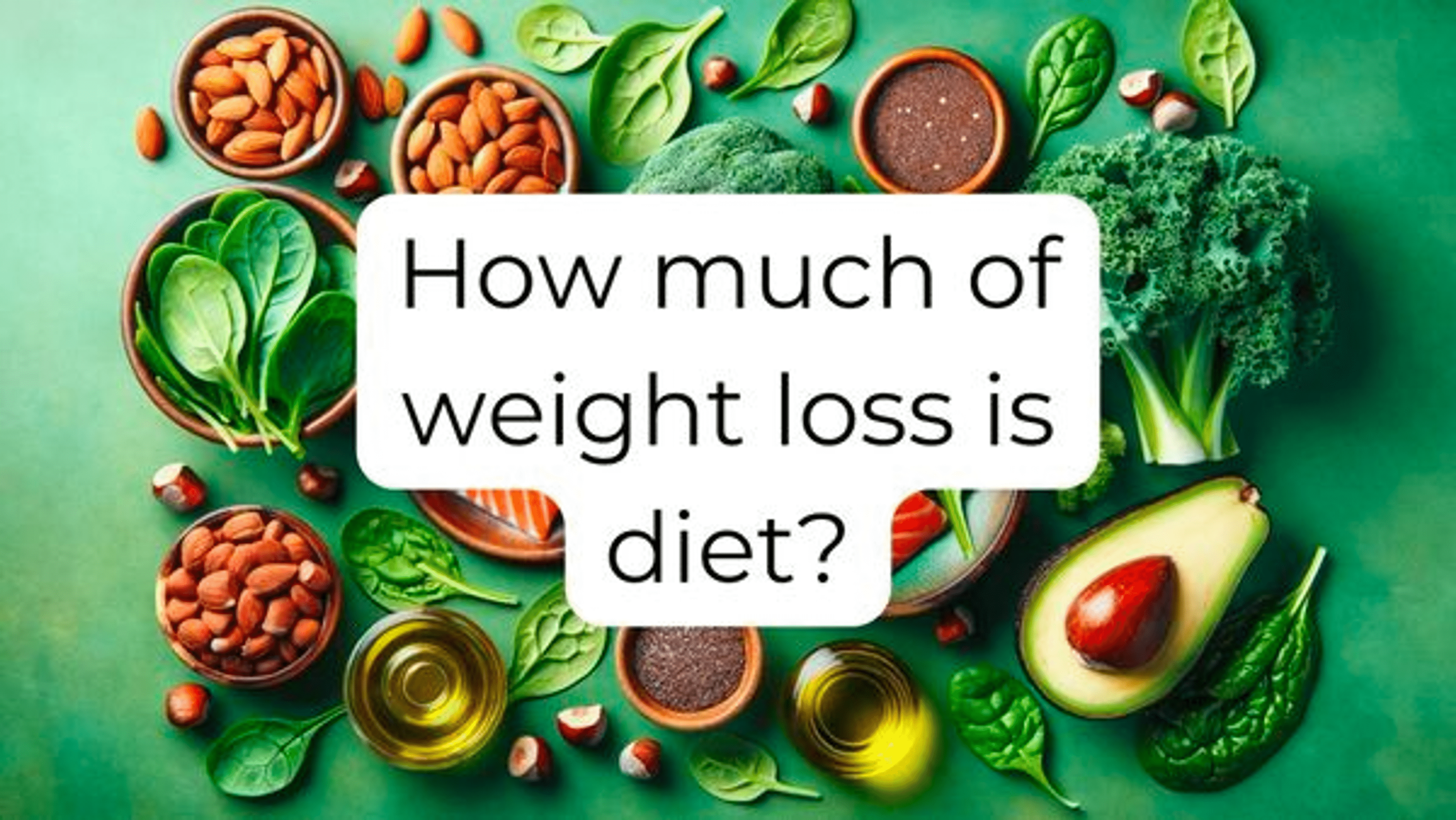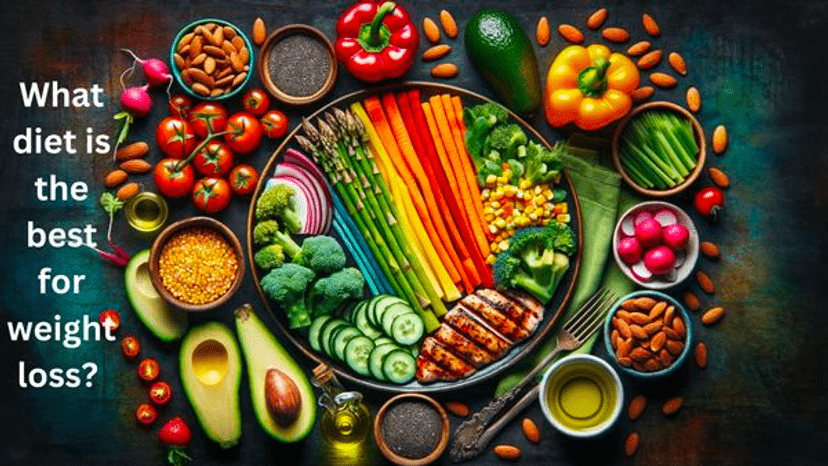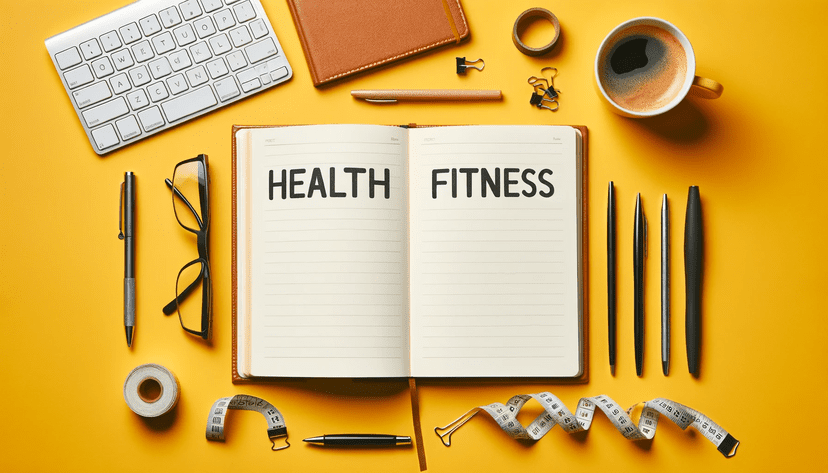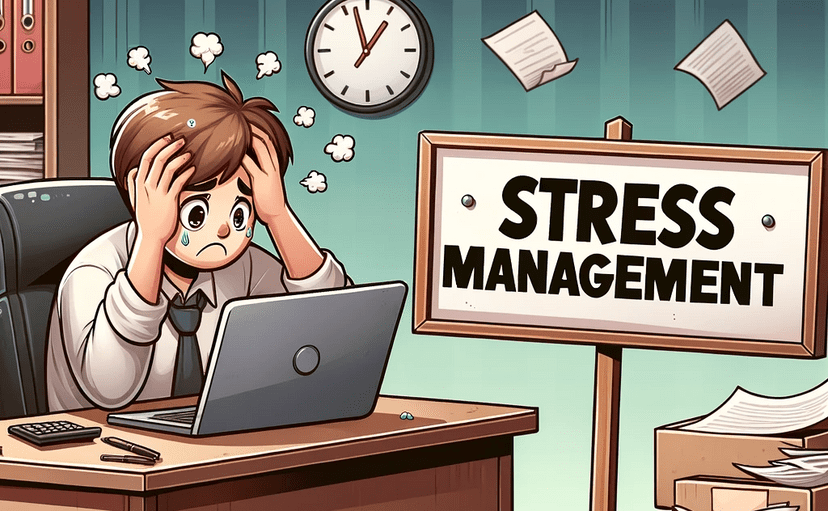How much of weight loss is diet?

Understanding Weight Loss and How it Works
Weight loss is a term that majority has come into contact with, but the intricacies of its definition and how it functions are often overlooked or misunderstood. In the simplest terms, weight loss refers to the reduction of your total body mass, which can occur due to the loss of body fluids, fat, or lean mass (such as bone mineral deposits, muscle, and other connective tissues). Despite the various components that could contribute to weight loss, this post focuses primarily on the decrease in body fat, which is often the main target for people seeking to lose weight.
Weight loss, specifically fat loss, doesn't happen by magic or overnight. It's achieved mainly through a balance between two key factors: calories consumed and calories expended. This principle, often seen as a balance or tug of war, forms the foundation of weight management.
Definition of Weight Loss
At its core, weight loss happens when you burn more calories than you consume over a certain period. This imbalance between the calories you consume (through eating and drinking) and the calories you expend (through basic body functions and physical activity) is known as a caloric deficit. This deficit forces your body to use its energy stores, primarily fat, resulting in weight loss.
When you create a caloric deficit, your body must make up the energy shortfall somewhere. Typically, our bodies would access stored fat or muscle tissue to make up the difference, ultimately leading to the reduction in weight. However, for a sustained and healthy weight loss, expending fat stores is key, and this typically results in a more efficient and permanent form of weight loss.
The Balance between Calorie Intake and Calorie Expenditure
The phrase 'Energy balance' is often used when discussing weight loss and refers to the balance between the energy (calories) you consume, against the energy expended in your daily activities. Simply put, if you consistently consume more calories than your body uses, you'll gain weight. On the other hand, if you consistently consume fewer calories than your body’s requirements, you'll lose weight.
Everyone’s energy needs differ, based on factors such as genetics, age, gender, physical activity levels, and overall health. However, aligning your daily calorie intake with your body's specific energy needs can help maintain a healthy weight.
Mastering your caloric balance is not a mathematics game, rather, it's about understanding the impact of different kinds of food, portion control, and your own physical activity level, on your body weight.
In the subsequent sections of this post, we'll dive deeper into how your diet and exercise routines can affect this balance, and thus influence your weight loss journey. By understanding these dynamics, you would be better equipped to make sustainable lifestyle changes achieving your weight goals in a healthy way, that will be beneficial in the long run.
Diet’s Role in Weight Loss
In the quest for weight loss, numerous factors play vital roles. However, the diet you consume establishes a significance that trumps the rest. Your diet can either liberate you towards your weight loss goals or imprison you within the confines of unwanted body fat. Let's delve deeper into this integral subject, exploring what constitutes a weight loss diet, the science behind how diet promotes weight loss, and the much-debated phrase, "You can't outrun a bad diet".
What Constitutes a Weight Loss Diet
The term "weight loss diet" can often be misleading, suggesting a restrictive, short-term approach, typically characterized by incomplete nutritional profiles in an attempt to cut calories drastically. Yet, a genuinely favourable weight-loss diet is quite the contrary. It is not about starvation; it's about nutrition. The objective is to facilitate an energy deficit by consuming fewer calories than your body burns, without sacrificing your nutritional needs.
A scientifically sound weight loss diet has a few key characteristics:
-
Balanced Nutrition: A lean, protein-rich diet complemented by a generous amount of low-starch vegetables, whole grains, and a regulated intake of healthy fats from sources like avocados and oily fish.
-
Calorie Awareness: It's about maintaining a balance between energy consumed through food and energy expended by the body. Simply put, calories in should be less than calories out.
-
Sustainability: One that could be incorporated into your lifestyle with manageable changes rather than being an outright overhaul—your taste preferences, cultural considerations, and medical conditions should be taken into account.
The Science Behind How Diet Promotes Weight Loss
The science of weight loss is predominantly governed by a basic principle of thermodynamics, known as the Energy Balance Equation. It proclaims that changes in our body's energy stores are equal to the energy we absorb from food minus the energy our bodies expend.
When there is balanced energy intake, the energy we absorb from food equals the energy we expend, resulting in body weight being maintained. When there is negative energy balance, the energy expended surpasses energy absorbed, leading to weight loss. And the reverse is true for positive energy balance leading to weight gain.
Thus, your energy intake, primarily controlled by your diet, plays a pivotal role in weight management. Reducing your calorie intake or altering the macronutrient composition of your diet can tip the balance towards weight loss.
"You Can't Outrun a Bad Diet"
There's a well-worn phrase in health and fitness circles: "You can't outrun a bad diet". And it's largely true. While physical activity is a key component of health and weight management, it is secondary to the importance of diet. The calorie expenditure from hours of exercise can be easily undone by a single high-calorie, highly-processed meal.
This doesn't mean exercise isn't important, but it does mean that diet must be the foundation of a weight loss strategy. Think of it this way, we control our energy expenditure mainly through physical activity, but it's far easier to consume a few hundred calories than to burn the same number through exercise. Therefore, making conscious dietary improvements can have a more significant impact on weight loss than increasing physical activity alone.
In conclusion, if weight loss is your goal, understanding the role of diet is absolutely essential. Prioritize balanced, nutrient-dense foods, control your calorie intake, and pay attention to portion sizes. Integrate sustainable changes into your dietary habits that not just aid weight loss but also nurture long-term health and well-being. Remember, diet isn't the whole answer, but it's a considerable part of the solution.
In Summary
In essence, weight loss is governed by the fundamental principle of caloric deficit, whereby you lose weight when the calories you burn are more than the calories you consume, primarily achieved through a balance between your diet and physical activity. This process specifically targets the reduction of body fat.
Simultaneously, the concept of energy balance is equally significant, which refers to the energy intake through your diet versus the energy you expend through physical activity. Invariably, if you consistently consume less energy than you expend, you are bound to lose weight.
The role of diet in weight loss is of paramount importance. A good weight loss diet should be based on balanced nutrition, calorie awareness, and sustainability. Remember, an effective weight loss diet is not about starvation, it's about nutrition.
Moreover, the old adage "You can't outrun a bad diet" holds much truth. As critical as physical activity is to your health and weight management, its impact can easily be overshadowed by a poor diet.
Plan of Action
Considering the information above, the implementation of a successful weight loss strategy should ensure:
- A thorough understanding of the energy balance concept and how it affects weight loss.
- An aim to create a sustained caloric deficit without sacrificing on the nutritional needs.
- The diet forming the core of the weight loss strategy with physical activity as a crucial part but secondary to diet.
Action Steps
To turn this theoretical understanding into practical outcome:
- Identify your daily caloric needs: Seek the help of professional tools or consult with a dietician/nutritionist to have an accurate estimation of your daily caloric needs based on your unique parameters.
- Plan your meals mindfully: Ensure that your diet is balanced with lean proteins, low-starch vegetables, whole grains, and healthy fats while keeping in check your calorie consumption.
- Practice portion control: Being aware of the portion sizes can help significantly in maintaining a balanced diet and avoiding over-consumption of calories.
- Incorporate physical activity: Incorporate a form of physical activity you enjoy into your daily routine to assist in burning calories and inducing a state of caloric deficit.
- Adopt a sustainable approach: Remember, the objective is to adopt sustainable changes in your lifestyle that not just foster weight loss but also nurture long-term health and well-being.
These steps, if followed consistently, should pave the way for a successful weight loss journey, rooted in a deep understanding of the process, leading to sustainable and beneficial lifestyle behaviours.




![How to set New Year's Resolutions [Explained]](https://img.imageboss.me/onestep/width/828/format:auto,quality:80/assets/site/blog/how-to-set-new-years-resolutions-explained.png)






